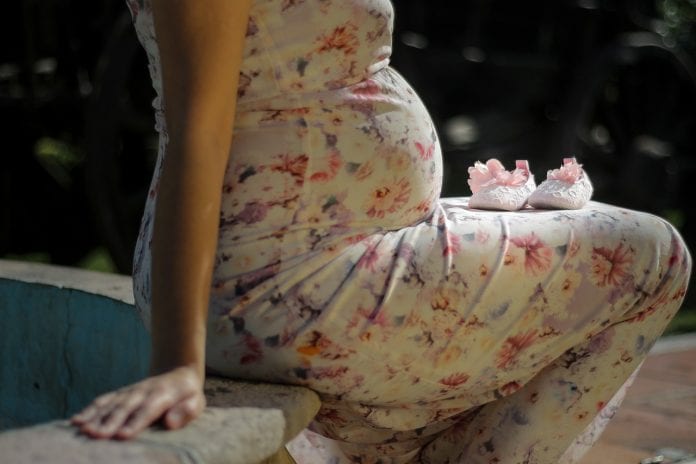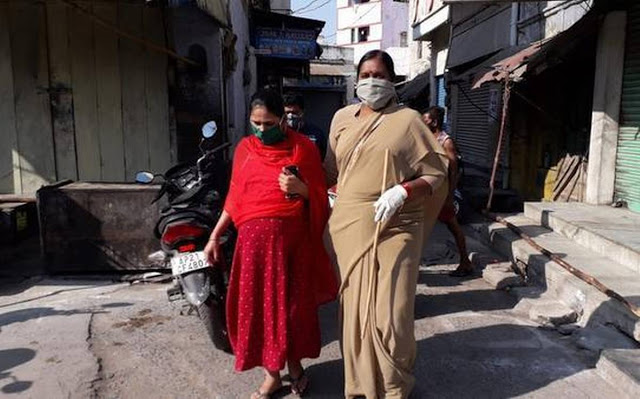While expecting mothers suffered medical negligence and nutritional issues, the national average of pregnant women registered between April 1 and June 10 was just 24.05% of the estimated count, while that of newborns was 17.47%Shahina KK6:30 AM, 1 July, 2020

At around 6 pm of May 3 in Delhi, a pregnant woman with a history of pregnancy-induced hypertension had spotting and was in need of immediate medical care.
She was turned away from two major private hospitals in Delhi and one of the hospitals told her that they only admit cases that have booked with them. Despite pressure from higher authorities, the hospital refused to take her case citing that “she was arguing too much.”
“Sensing the emergency, we took her to a third hospital, which initially refused citing booking issues, but finally admitted her when a senior doctor intervened. She finally had a pre-term birth,” said Dr Sana Contractor, a public health practitioner who had been volunteering with a medical support group, providing help to people who are in need of emergency medical care for having non-COVID ailments and physical conditions like pregnancy.
The story of medical negligence to women in need of antenatal care during the lockdown that Sana shared is one among several others shared by volunteers and community workers across the country. With medical staff employed in COVID work, there have been cases where pregnant women have been refused treatment or admission to hospitals, or have been unable to reach hospitals due to non-availability of ambulances, leading to their death or that of the foetus. In the absence of health care, many have chosen to deliver at home.
Related news: Tripura govt to distribute nutrition kits to pregnant, lactating women
Volunteers working for non-COVID patients say most of the activities related to non-COVID medical conditions like family-planning programmes, vaccinations, and antenatal care were put on hold during the lockdown. The ASHA and Anganwadi workers, who are the primary care providers to pregnant women and newborns, were overloaded with work in the battle against the virus.
Numbers reveal a complete absence of medical care
Data accessed by The Federal from sources in the Ministry of Health and Family Welfare corroborate the claims. According to the data, a drastic decline was seen in the registered number of pregnant women and childbirth since the imposition of the lockdown in several states.
According to data from April 1 to June 10, 2020, the national average of the estimated number of pregnant women registered with the MoHF, was only 24.05 per cent, while that of newborns was only 17.47 per cent. In other words, 76 per cent of the pregnant women and 83 per cent of the newborn children are nowhere in the data bank. What happened to the rest of the 76 per cent of pregnant women in the country? Did they deliver in their homes? Did they get medical care on time? For the time being, nobody knows.
The case of infants is scarier. It is not known if the 83 per cent of the estimated childbirths (since April) have received vaccination and other required emergency medical care. The country does not know how many of them have survived as well.
The states which have come up with poor registrations are West Bengal, Telangana, Madhya Pradesh, Jharkhand, Bihar, and Uttar Pradesh among others. States like Kerala and Karnataka, however, have kept their numbers high in line with their effective system of maternal and infant health in place.
“This data is very problematic. We have to assume that 76 per cent of the pregnant women have been denied of antenatal care. There are several central and state schemes like Janani Suraksha Yojana providing incentives to pregnant women. This data shows that a brutal majority of pregnant women are being thrown out of the benefits of such schemes,” Sandhya Goutham, director, Seher, a unit of CHSJ and coordinator of National Alliance for Maternal Health and Human Rights, a collective of civil society organisations working for maternal health.
Who did well and who did not
The data accessed by The Federal from sources in the Ministry of Health and Family Welfare also points to a paralysis of the system in Bihar, Telangana, Uttar Pradesh, and West Bengal, where the registered number of pregnancies and childbirth have been very low since the lockdown.
Between April and June 10, Bihar has registered only 5 per cent of the estimated number of pregnant women and that of newborns. The numbers are 2.28 per cent and 1.17 per cent respectively for Telangana. Uttar Pradesh, on the other hand, has registered only 11.68 per cent of the estimated number of pregnant women in the stated period, while recording 10 per cent of the estimated childbirths.
Related news: Priyanka, Akhilesh slam UP govt as pregnant woman dies in ambulance
The case of West Bengal is simply bizarre. The state has zero recordings pertaining to the estimated figures.
The silver lining is that states like Karnataka and Kerala, which have had a consistent history of good performance in maternal and infant care, have managed to keep their records impressive. Karnataka recorded 74 per cent of the estimated number of pregnant women and 59 per cent of childbirth amidst the pandemic. The same is for Kerala, which reported 74 per cent and 68 per cent of pregnancy and childbirth.
For a few states, COVID-19 is not the only reason
In the year 2019-20, the national average of registration of pregnant women against the estimated number was 60 per cent and the same of childbirth was 70 per cent. The data indicates that COVID-19 is not the sole reason for a few states for the low number of registration of pregnancy and childbirth, as their performance in the previous year too was very poor.
For example, West Bengal has registered only 32 per cent of pregnancies and 28 per cent of childbirth in 2019-20. The data categorically proves that the system of registering pregnancy and child birth is completely dysfunctional in Telangana. There was no pandemic in 2019-20 and Telengana’s figure was no better. The state has registered only 3 per cent of the estimated number of pregnancies and 2.4 per cent of childbirth the whole financial year.
Bihar also had a poor record of registration of pregnant mothers and newborns in 2019-20, with 35 per cent and 34 per cent respectively.
Related news: Newly married, pregnant women left without financial help amid lockdown
According to the MoHF data, Jharkhand is also there among the list of the worst-hit states. Only 6.94 per cent of the estimated number of pregnant women have been registered since April till June 10. The number is poorer when it comes to the case of registration of childbirth, which is 5.31 per cent of the estimated number. Incidentally, Jharkhand is not a state that otherwise keeps a low record. Last year (2019-20), 61 per cent of estimated pregnant women were registered, while 52 per cent of estimated childbirth was recorded.
Risk factors, lack of nutrition
Apart from non-availibility of medical services, pregnant women are exposed to high risks and infections during the pandemic, with medical staff not following COVID protocol while handling patients.
“Even the mid-wives and other health workers at the community level do not have PPEs or even masks. They use ordinary cotton masks while attending to pregnant women and newborns. Many primary health care centres and other clinics are either locked down due to the absence of staff or most of them are completely occupied with COVID-19,” says Lindsay Barnes, the coordinator of Jan Chetna Manch, an organisation based in Bokaro district of Jharkhand. Jan Chetna Manch, according to them, is a grass-root level organisation working towards gender rights, land and livelihood of the poor.
Banres told The Federal that the massive impoverishment caused by the lockdown among pregnant women is yet another bigger challenge they had to take up.
“Many of the women who normally come to the women’s health centre for childbirth are from poor families. The lockdown has hit them hard. We realised that many would revert to home deliveries in the absence of financial support. The government hospitals were also reluctant to admit women; many private nursing homes had closed down,” she said.
Abortion, contraception ignored
Unwanted pregnancies and women’s rights to choose abortion is another subject that is being completely silenced in the wake of the pandemic, according to people working for reproductive health care. “Abortions even in normal times happen very discreetly, even among married couples as they do not want their extended families to know about it. The lack of contraception and a possible spike in unwanted pregnancies and the non-availability of medical services for abortions is an issue that has been undermined during the lockdown,” said Dr Shubashri B, obstetrician gynaecologist and the steering committee member of CommonHealth, a coalition for reproductive health and safe abortion.
No SOPs, confusion galore
Shubashri blames the poor response and low numbers of registration on the lack of guidelines for medical professionals in the initial stages of the lockdown.
“When we look at maternal health, for the first 21 days of lockdown, there were hardly any guidelines. The guidelines on essential services were issued only later, by which the time had an adverse impact on maternal health too,” Dr Shubashri said.
“There was a lot of confusion. Pregnant women were strictly asked to sit at home. As there were mobility restrictions, the health workers were not able to reach the community either. This had a very severe impact on antenatal care including nutrition supplements, vaccinations, and required medical examinations like scanning. Blood donations were also curtailed, which pushed women into great risk,” she said, adding that private hospitals too were reluctant to provide antenatal care due to the COVID-19 scare.

July 3, 2020 at 9:22 pm
The condition of pregnant women, especially marginalised sections, is very pathetic due to lack of proper healthcare